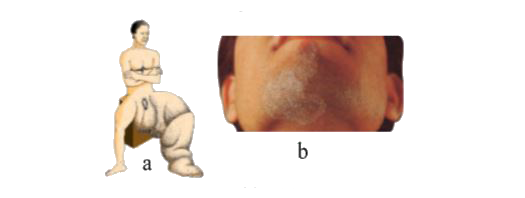Define disease
Step-by-Step Text Solution:
1. Understanding Health: Before defining disease, it's important to understand the concept of health. Health refers to the overall physical, mental, social, and emotional well-being of an individual. A healthy person typically maintains a balanced diet, exercises regularly, and practices good hygiene.
2. Definition of Disease: A disease can be defined as a condition in which one or more organs of the body are not functioning properly. This dysfunction can lead to various symptoms and health issues.
3. Pathogens: Diseases are often caused by organisms known as pathogens. These pathogens can include viruses, bacteria, and fungi, which invade the body and disrupt normal functioning.
4. Types of Diseases: Diseases can be categorized into two main types:
- Infectious Diseases: These diseases can easily spread from one person to another through various means such as air, water, or direct contact. An example of an infectious disease is the common cold.
- Non-Infectious Diseases: These diseases do not spread from person to person and often require specific vectors for transmission. For instance, malaria is transmitted through the bite of an Anopheles mosquito, while diseases like cancer are non-infectious and arise from internal factors.
5. Examples of Diseases:
- Infectious: Common cold, AIDS (which is highly lethal).
- Non-infectious: Cancer.
Summary Definition:
A disease is a condition characterized by the dysfunction of one or more organs, often caused by pathogens, and can be classified as either infectious or non-infectious.
---
- Infectious Diseases: These diseases can easily spread from one person to another through various means such as air, water, or direct contact. An example of an infectious disease is the common cold.
- Non-Infectious Diseases: These diseases do not spread from person to person and often require specific vectors for transmission. For instance, malaria is transmitted through the bite of an Anopheles mosquito, while diseases like cancer are non-infectious and arise from internal factors.
- Infectious: Common cold, AIDS (which is highly lethal).
- Non-infectious: Cancer.
A disease is a condition characterized by the dysfunction of one or more organs, often caused by pathogens, and can be classified as either infectious or non-infectious.
Topper's Solved these Questions
- HUMAN HEALTH & DISEASE BOOK - VMC MODULES ENGLISHCHAPTER - HUMAN HEALTH & DISEASE EXERCISE - PRACTICE EXERCISE-3
6 Videos
- HUMAN HEALTH & DISEASE BOOK - VMC MODULES ENGLISHCHAPTER - HUMAN HEALTH & DISEASE EXERCISE - IN-CHAPTER EXERCISE-A
10 Videos
- HUMAN HEALTH & DISEASE BOOK - VMC MODULES ENGLISHCHAPTER - HUMAN HEALTH & DISEASE EXERCISE - SOLVED PROBLEM
20 Videos
- EVOLUTION BOOK - VMC MODULES ENGLISHCHAPTER - EVOLUTION EXERCISE - IMPECCABLE
54 Videos
- HUMAN HEALTH AND DISEASEBOOK - VMC MODULES ENGLISHCHAPTER - HUMAN HEALTH AND DISEASEEXERCISE - IMPECCABLE
54 Videos
Similar Questions
Knowledge Check
An autoimmune disease is:
AAIDSBHaemophiliaCAllergyDMyasthenia gravis
Citrus canker is a
(a) Bacterial disease
(b) Fungal disease
(c) Viral disease
(d) Prion disease
View SolutionWhy is it that the line of treatment for a genetic disease is different from infectious diseases?
View SolutionWhy is it that the line of treatment for a genetic disease is different from infectious diseases?
View SolutionThe person showing in the pictures are affected by certain disease. Identify the correct about these disease.

View SolutionPleurisy is the disease of
View SolutionAn autoimmune disease is:
View SolutionAn autoimmune disease is
View Solution
